Which food prep appliance do you need? I've tested them all – here’s a chef's guide to picking the one that works hardest for you
From mini choppers to blenders, I've compared the best kitchen sidekicks and ranked them by use, to help you stay stress-free for hosting season

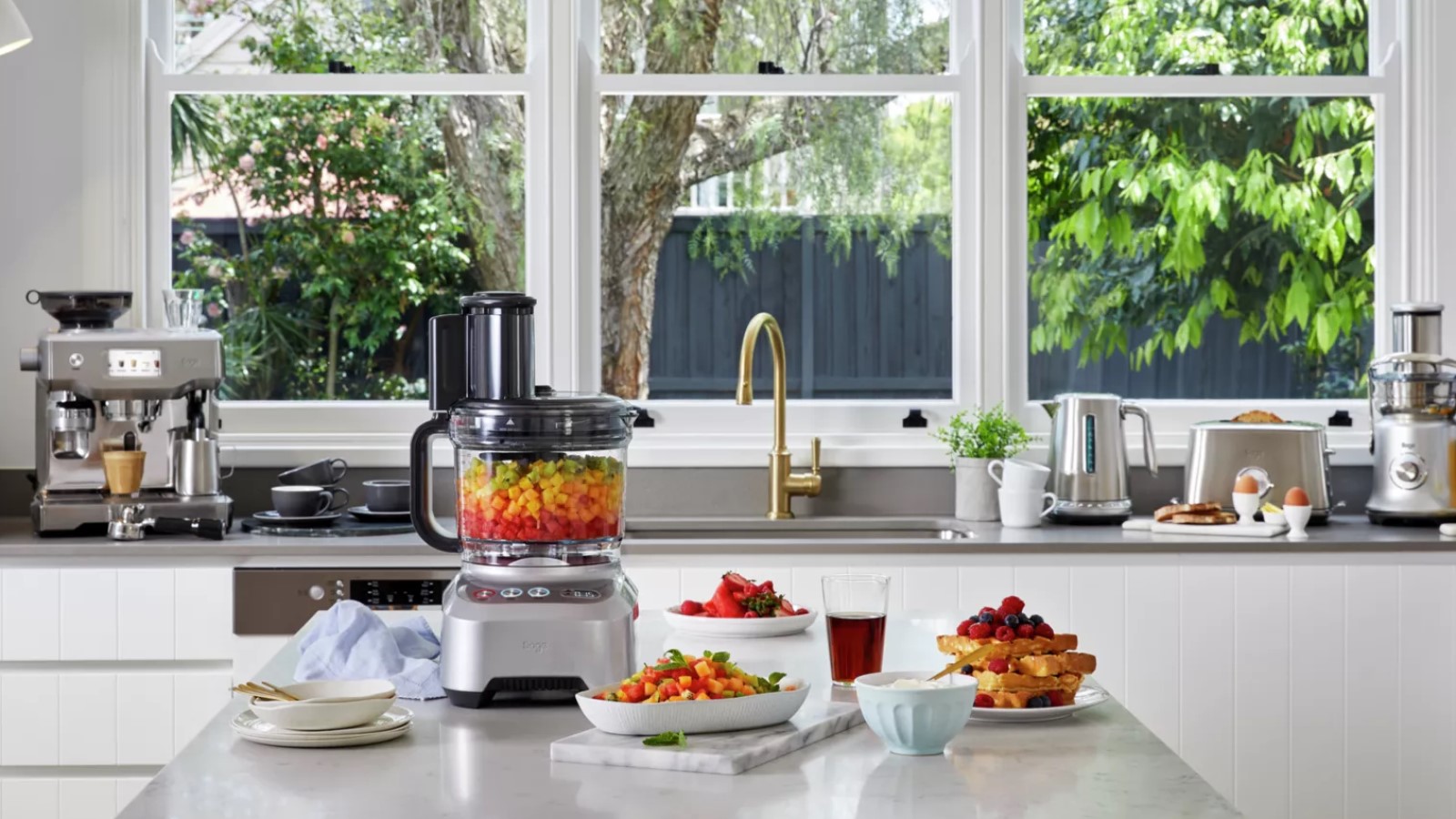
When it comes to modern food prep, there are a dazzling number of kitchen gadgets available to make your life easier. With so many options, come many questions. Do you really need a high-power food processor to make a good hummus? Or will a simple blender do the trick? Will a chopper save you time in the evening, or is it just an extra piece of clutter?
I'm a chef and a kitchen appliance reviewer, so I’ve tested all the gadgets in the game – the best blenders, juicers, mini choppers, food processors, and even some manual tools – so you don’t have to guess which appliance you need.
In this guide, I’ll break down which kitchen appliances you actually need for food prep, which ones will make your favorite recipes genuinely easier, and how to get the best value for your money. By the end, you should know exactly what you actually need for your everyday cooking style and holiday hosting – whether that's the best blender-food processor combo or a humble pestle and mortar.
A quick comparison
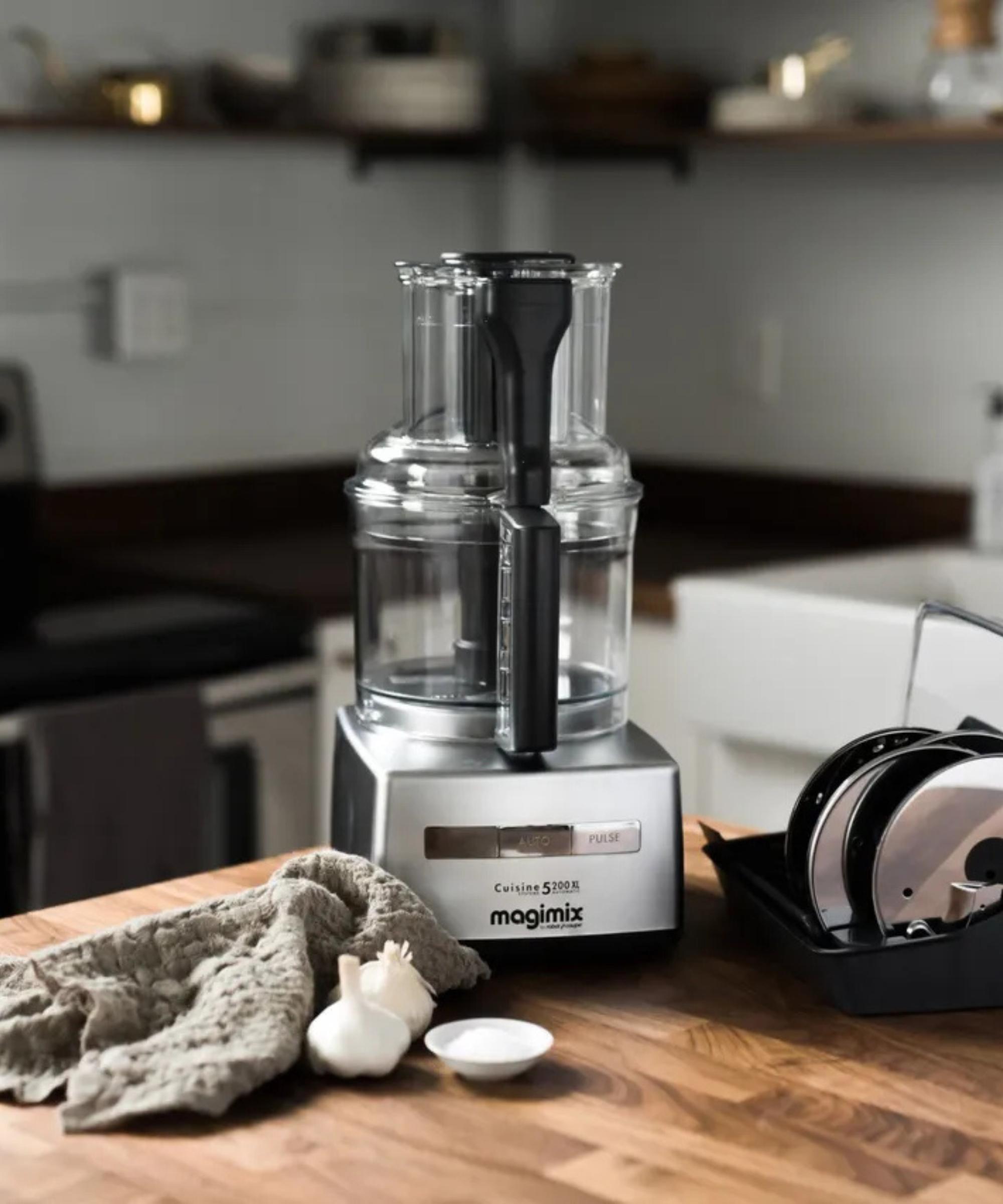
This comparison table highlights the differences between each food prep appliance, including which recipes they're best suited to, how they work, the size and the all-important price. You’ll find more detailed comparisons below, but this is a great place to start if you want the key takeaways.
Appliance | Best for / typical recipes | How does it work? | Size & storage | Price | Alternatives |
Countertop Blender | Smoothies, soups, sauces, purees, frozen cocktails (you need to add liquid). | Sharp blades spin at high speeds inside a tall jug to create a vortex and liquefy ingredients. | Large – needs counter space | £££ | An immersion blender can also tackle soups and smoothies, but it won't hack ice |
Immersion Blender | Soups, purees, baby food (plus, attachments for whipped cream and mini chopping). | A handheld motorized stick uses short, spinning blades, so you can blend directly in a pot or bowl – the best models come with attachments for multi-use | Small (they fit in a drawer) but attachments require need extra storage | ££ | Some countertop blenders have dedicated 'soup' functions |
Food Processor | Shredded cheese, dough, chopped veggies, hummus, nut butter, mayonnaise, ground meat. | A heavy-duty motor spins blades or discs inside a wide bowl for chopping, slicing, or shredding. | Large – needs counter space and a cupboard for the attachment case | ££££ | A small chopper will suit small onions, breadcrumbs or herbs, but it won't tackle chunkier tasks |
Mini Chopper | Chopped herbs, breadcrumbs, garlic, small onions, nuts. | A small motor spins blades around a compact bowl to chop ingredients in short, sharp bursts. | Small – easily stored in a cupboard | £ | A mortar and pestle is a great alternative for pestos, herbs or pastes |
Juicer | Green juice, citrus juice, ginger shots, and often nut milk and sorbet. | Extracts liquid from fruits or vegetables by slowly pressing or spinning to separate the juice from pulp. | Large - needs a lot of counter space | ££££ | A juicer is pretty incomparable to anything else, but you can find blender-juicer combos |
Grinder | Ground coffee, spices, nuts, and seeds. | A compact, motorized container uses spinning burrs or blades to finely crush or powder ingredients. | Small – easily stored in a cupboard | £ | You can grind small quantities of seeds, nuts and coffee with a pestle and mortar |
Combo Appliances | Depends on your chosen appliance, but some can make juices, smoothies, soups, and chopped veggies. | Combo appliances come with interchangeable blades and discs for different blending, juicing, or chopping tasks | Tend to be large with lots of attachments that require storage | £££ | A good combo / multifunctional appliance should eliminate the need for alternatives |
Mortar & Pestle | Pesto, curry paste, crushed garlic, salsa, guacamole. | You manually grind ingredients in the mortar (bowl), using a heavy pestle often made from marble | Small – easily stored in a cupboard or on display | £ | A small chopper will also suit small, low-power tasks |
Blender vs. Food Processor: what is the difference?
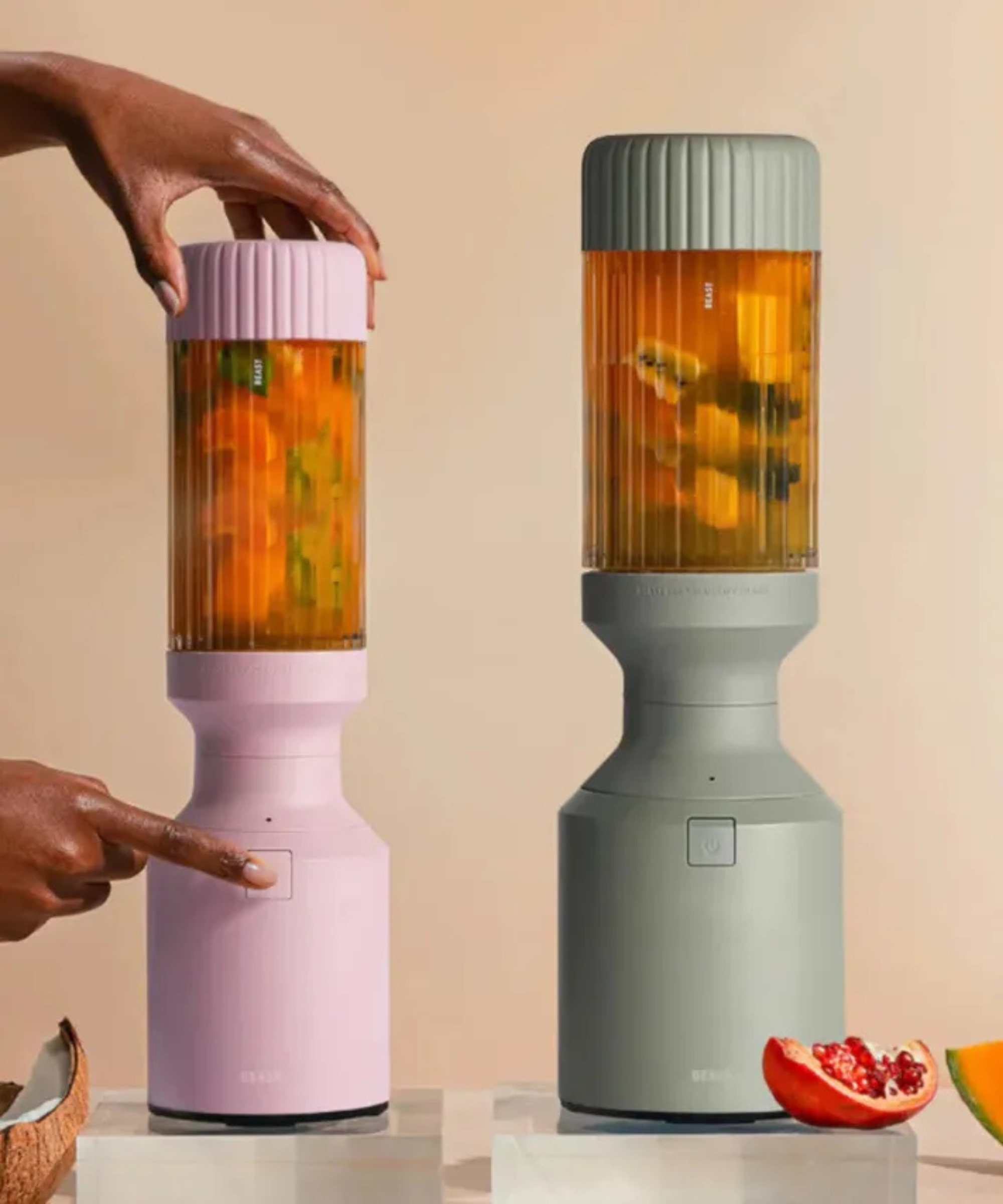
The key difference between blenders vs food processors comes down to liquids vs solids.
Blenders are unbeatable when it comes to liquidizing and will pulverize fresh fruit and vegetables to make delicious and healthy smoothies, soups, and sauces with ease. More often than not, they have built-in spouts to make pouring out your delicious concoctions a mess-free affair.
The best personal blenders are designed so you can drink directly out of the canister you blend in, saving on washing up, and are often supplied with a lid for fresh smoothies on-the-go. They tend to be very speedy, blending your ingredients into a smooth, drinkable texture in just a couple of minutes.
Food processors on the other hand offer a lot more functionality, like grating, shredding, and chopping at various speeds. They’re less about the liquids – although they can do that too, but there's no pouring spout – and all about getting dinner on the table. If your recipes requires a lot of dry ingredients (think raw vegetables, pastry dough, hummus, nut butter) you'll need a food processor.
The mixing bowls tend to be much wider and bigger (unless you buy a mini model) and, while a food processor is a bit more labor-intensive to set up and use, it will help you deliver a far greater menu range. The list of things you can make in a food processor is exciting.
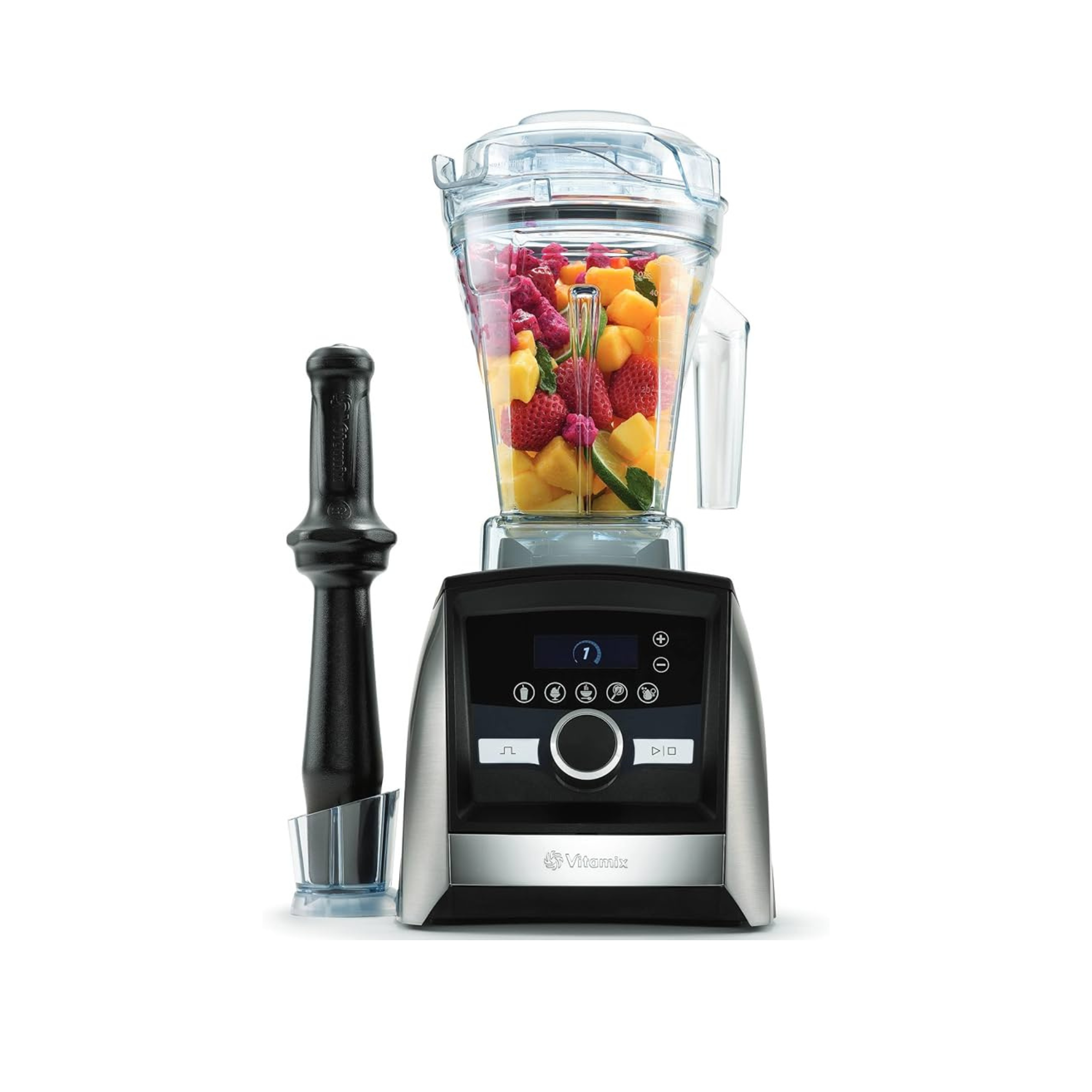
This is the best blender money can buy. It makes perfect smoothies, hot soup, crushed ice, and can even tackle nut butters, excelling in all our tests. It's beautiful and universally beloved.
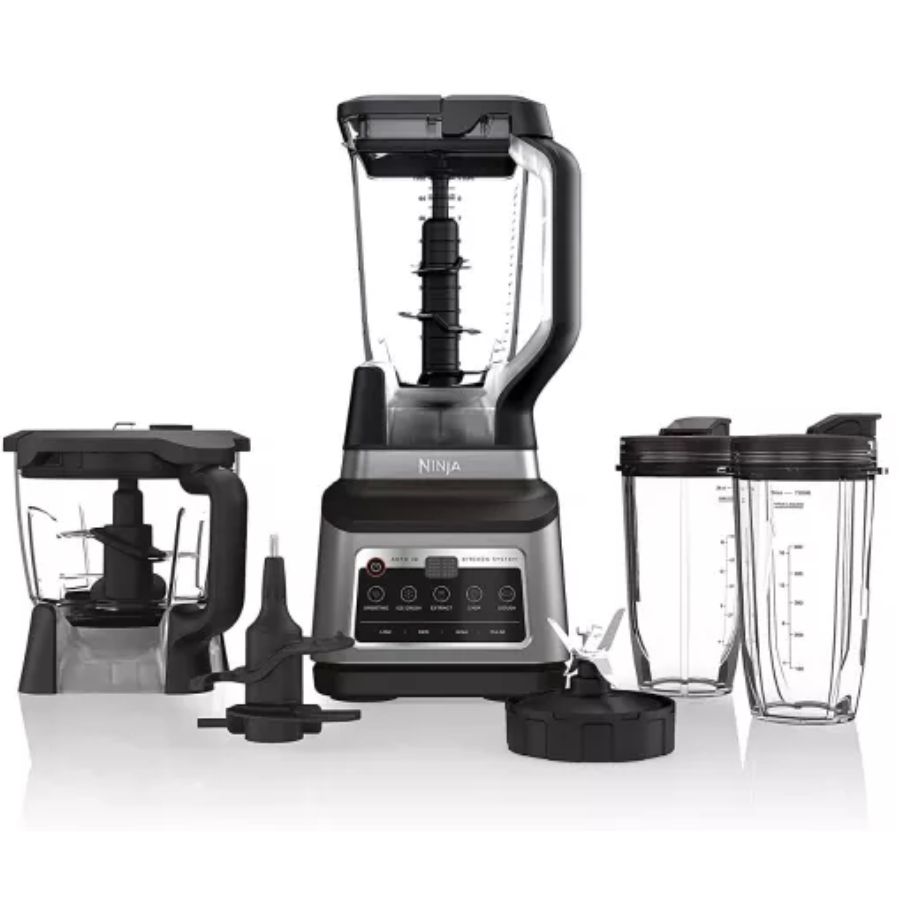
If you can't decide between a blender and a food processor, choose this. The powerful motor can handle almost every single kitchen task and it's good value for money. Just be prepared for the extensive amount of accessories, cups, and lids, that need storing in your cupboards.
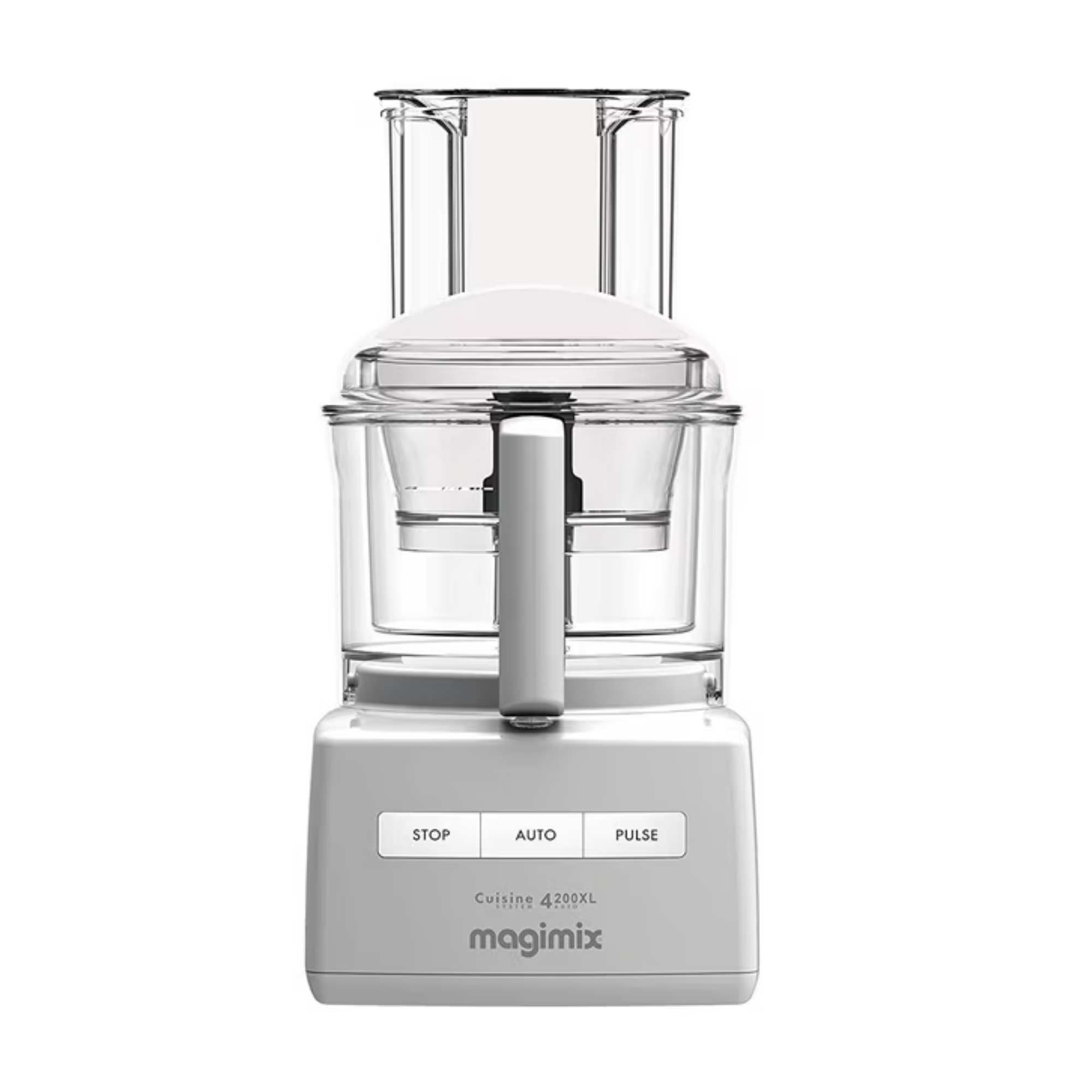
If you're a keen cook who wants to make perfect hummus, dressings, and dips - or prep vegetables or cheese on a large scale, you'll need a food processor. The Magimix is used in pro kitchens and beloved for it's durability. It even tackles heavy dough and ground meat.
Food chopper vs. food processor: what is the difference?
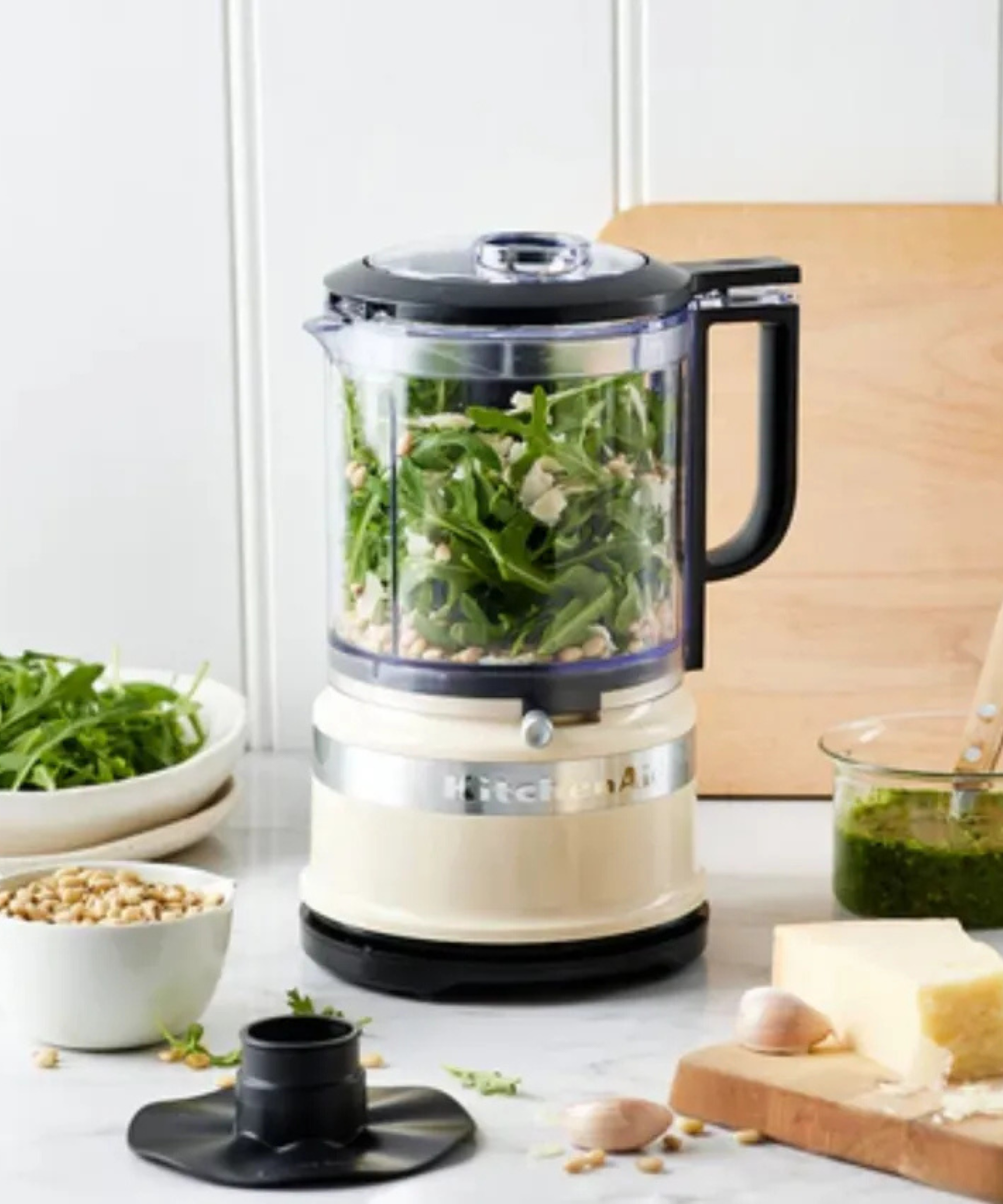
If you're weighing up food processors vs food choppers, the key differences are size, power, versatility, and price.
Food processors have a bigger capacity and tend to be more powerful and versatile. If you're keen on crafting complex recipes or cooking for a crowd, you'll want one of these. They start at around 10 cups, but we've tested some enormous models, like the Breville Paradice 16 Cup. They come with sturdy, powerful motors and lots of attachments for slicing, shredding, chopping, kneading, pureeing, mixing, and sometimes, dicing.
Food processors are quite expensive, but they are good value if you often prep in large quantities. The range of accessories means that they can be slightly more complicated to operate and harder to store.
Food choppers are petite appliances, perfect for compact kitchens. Their capacities can be as small as one cup and range up to five cups in size. They're perfect for chopping, mincing, and blending small amounts of food. They're less likely to come with extra accessories, instead, most choppers have a single, sharp chopping blade. It's specialized and straightforward, perfect for dips and salsas.
They're also more likely to be compact and sometimes even cordless, ideal for bringing outside or moving across countertops with. More often than not, food choppers are also cheaper than food processors, too.
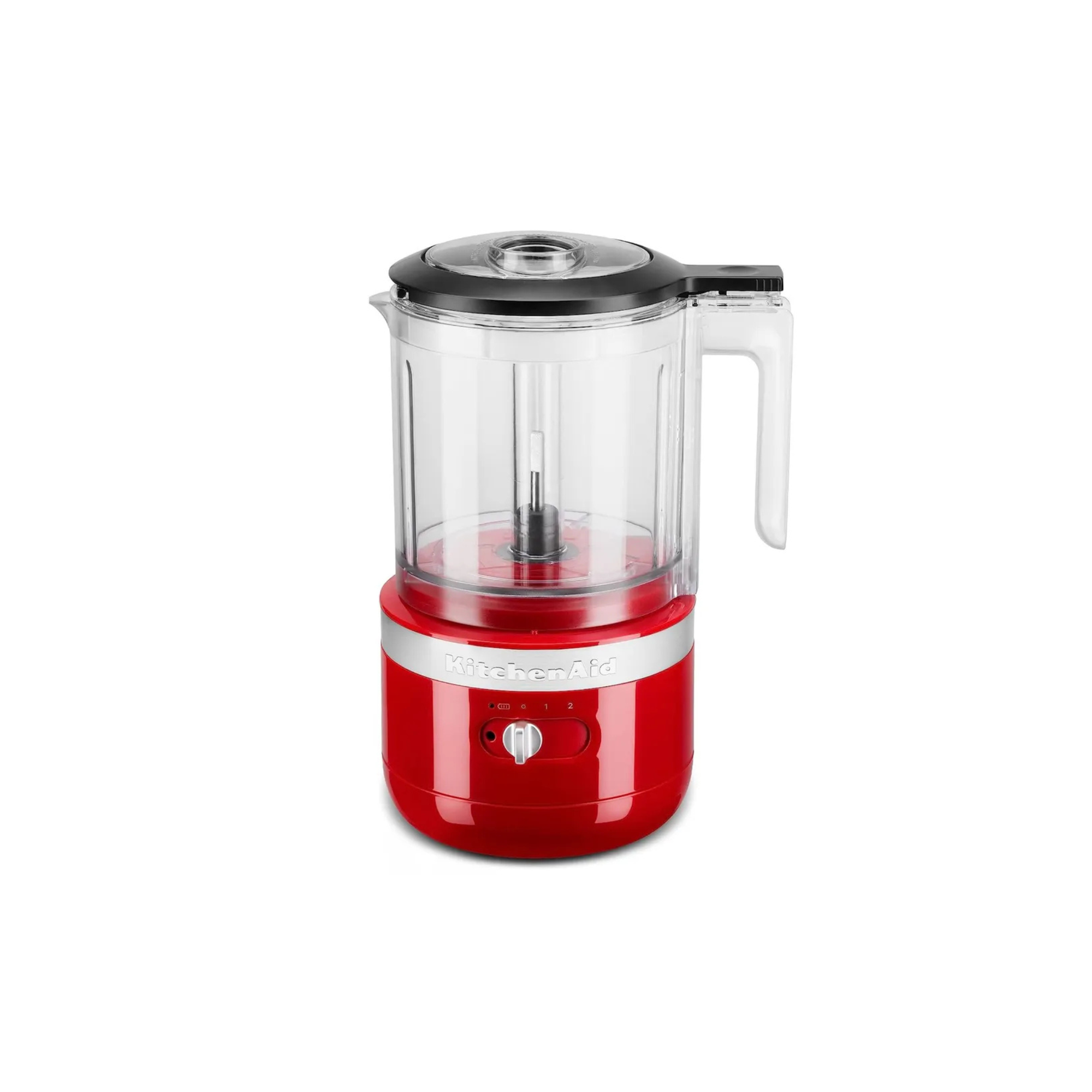
KitchenAid's mini food choppers are compact and easily stored. They're great for quick dips, salsas, or chopped herbs, and often under $100, which makes them more budget-friendly than large processors. KitchenAid even make cordless options, which you can use anywhere - even outside at the grill.

A large food processor will provide unbeaten capacity and power, tackling, heavy ingredients like dough and meat, shredding cheese, and many are available with dicing attachments to create perfect chopped salad. They are expensive and bulky, so consider that before you buy.
Slap chop vs. Food processor: which is better?
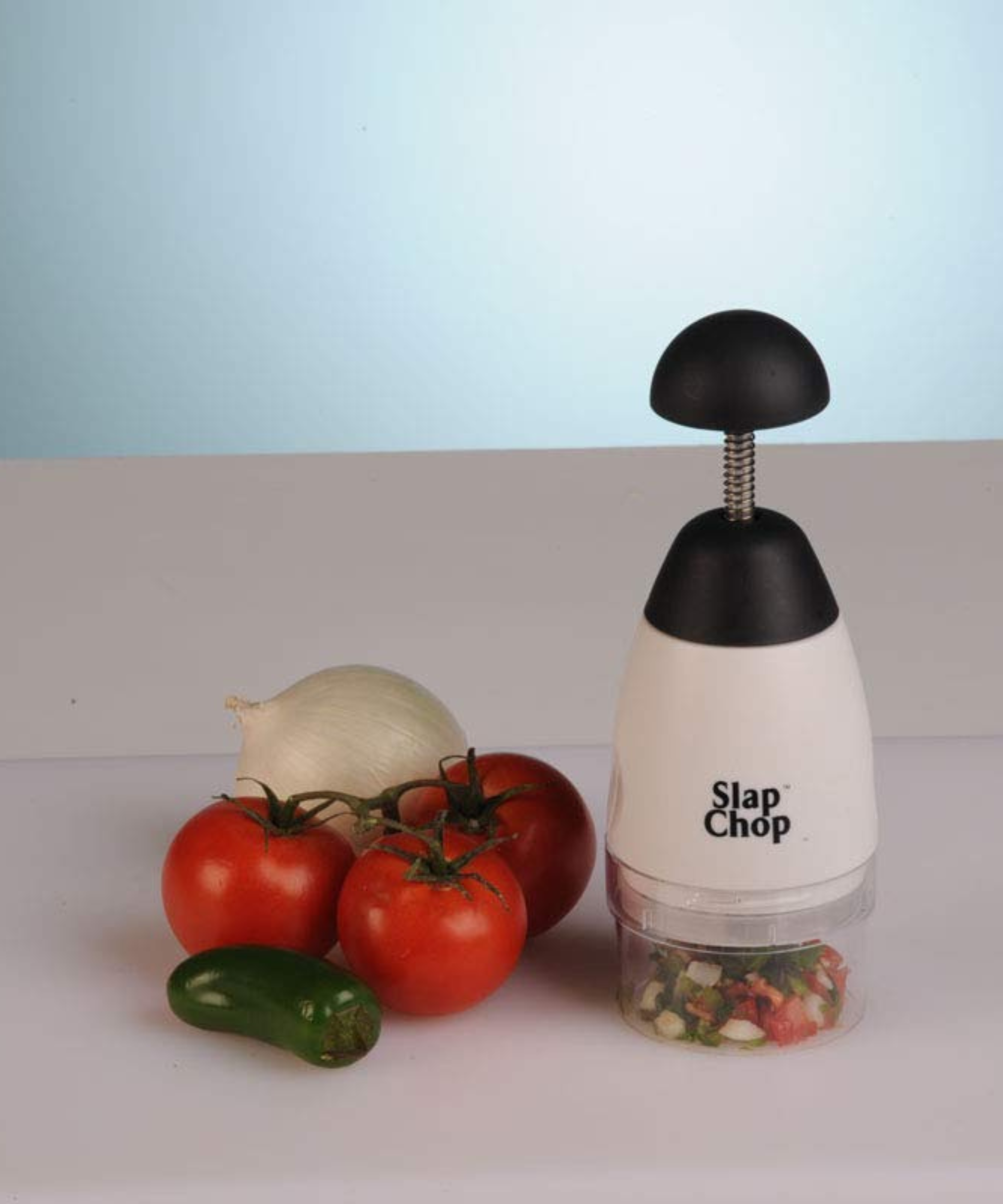
Slap chop vs food processor: it's the question that continues to divide keen cooks and baffle starter chefs.
You might remember the Slap Chop from late-night commercials back in the 2000s. This kitchen gadget is designed to make meal prep quick and easy. Coated in plastic to cover the internal blades, the slap chop is a hand-held chopping device. All you need to do is hold it over your produce and slap your hand against the spring. The force of the slap presses down on the blades, which make quick, clean incisions into the food.
Where a Slap Chop is manual, a food processor is electric and powered by sturdy motors. You can set it to chop on low, high, or a pulse setting to control your cuts. Unlike the Slap Chop, which stands alone, many of the best food processors come with added attachments for blending or dicing.
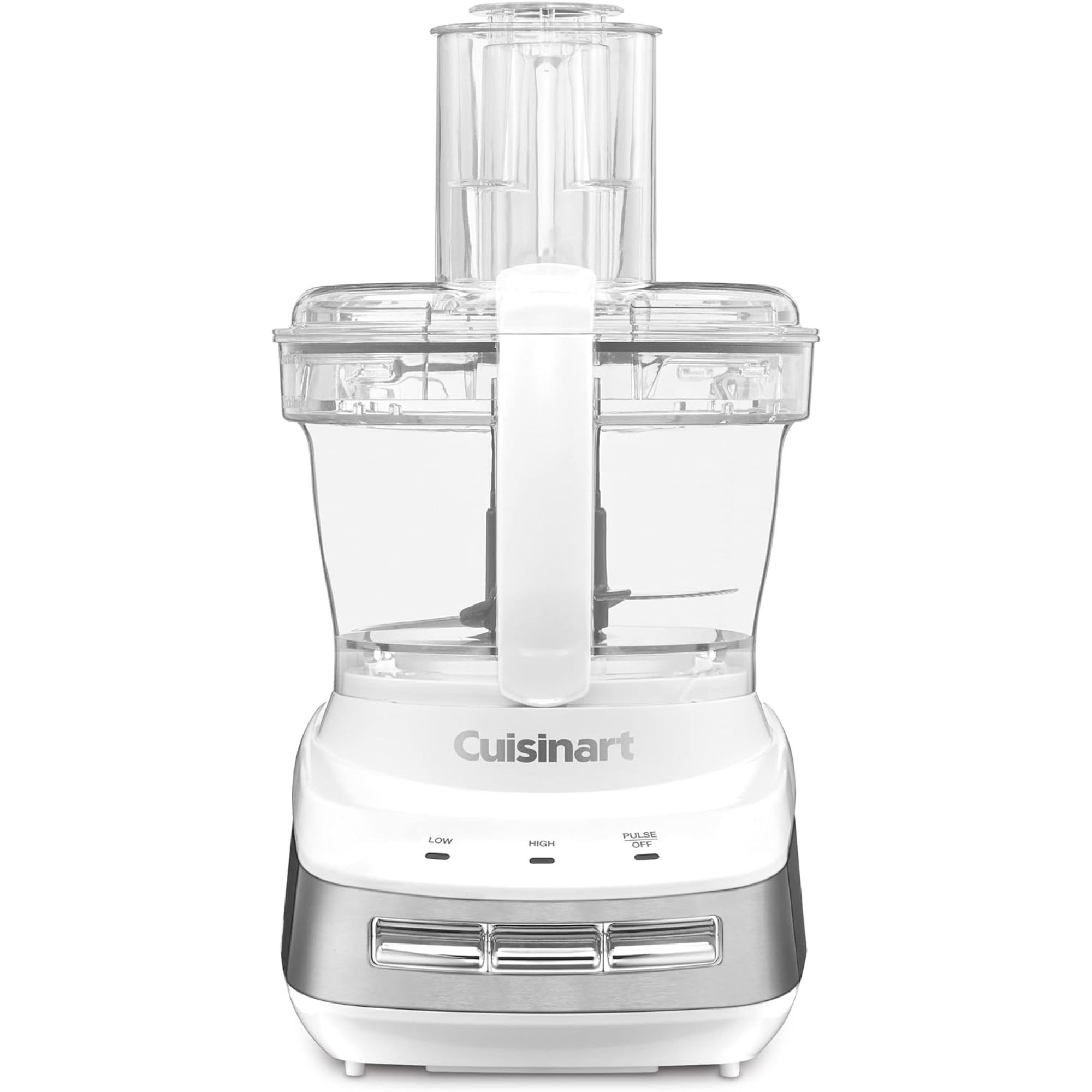
This cute and compact machine is one of the best food processors. It's a real kitchen workhorse that's great for grinding, slicing, and chopping, too. It makes light work of slicing and dicing, and will last for years in your kitchen with quality materials and a powerful motor.
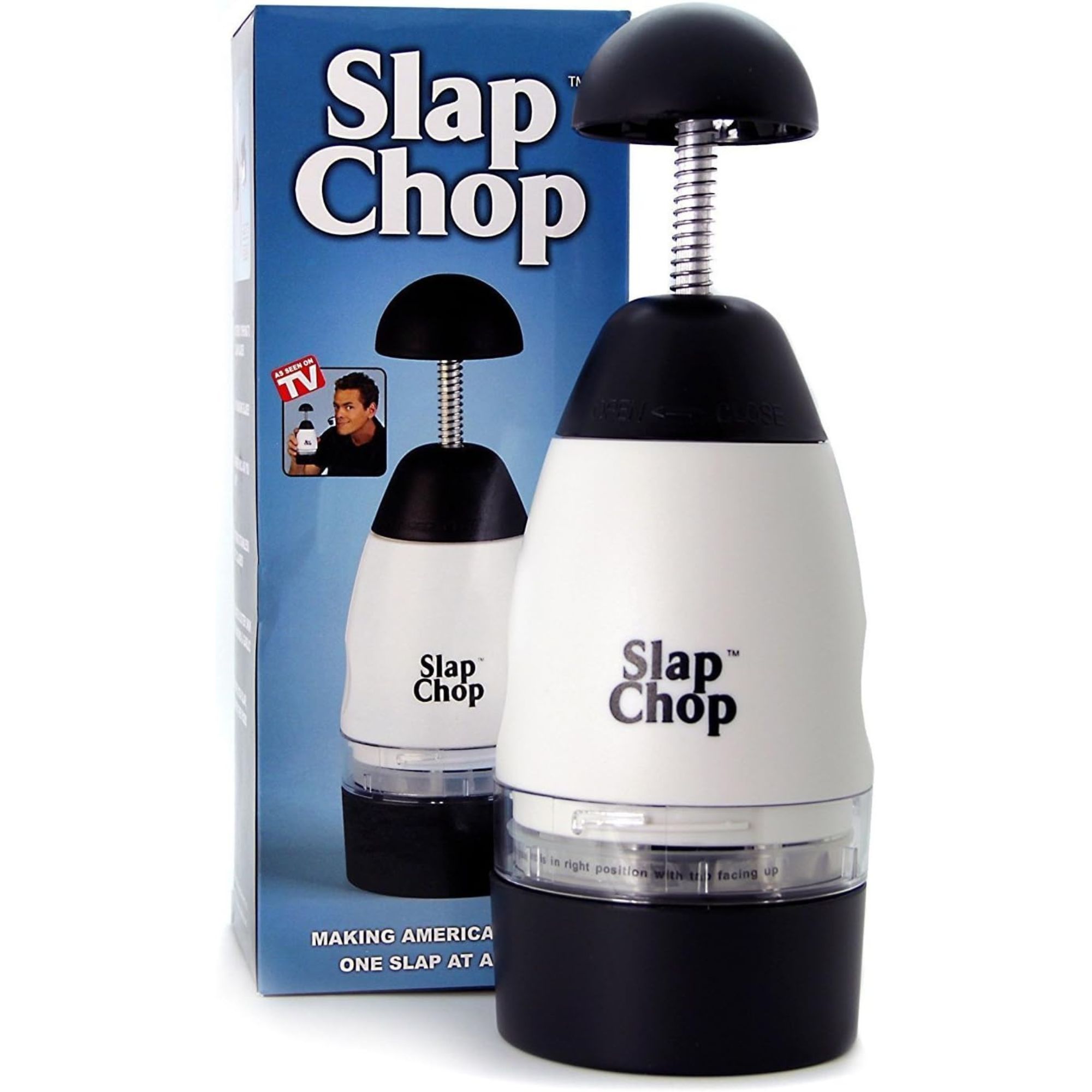
As seen on TV, the original Slap Chop is designed to make meal prep quick and easy. Each slap makes six incisions in your fresh produce to speed up slicing. It's best for garden salad, but not suitable for complex cooking and needs a lot of elbow grease. The price is affordable, though.
I'm a food processor fan through and through, so I asked another chef for an objective opinion. Jessica Randhawa, Head Chef at The Forked Spoon, says:
'When deciding between a Slap Chop and a food processor, consider your cooking habits and needs,' says Jessica. 'A Slap Chop is an excellent fit for someone who cooks in smaller quantities and needs a tool for quick, simple chopping jobs. It's convenient for small kitchens and cooks who don't require the diverse functions of a food processor.'
'In contrast, a food processor would make an excellent investment for a home cook who prepares meals for a large family or frequently engages in more complex cooking tasks. Its range of functions and capacity to handle larger quantities of food make it a versatile and invaluable tool in a busy kitchen'.
Juicer vs blender: what is the difference?
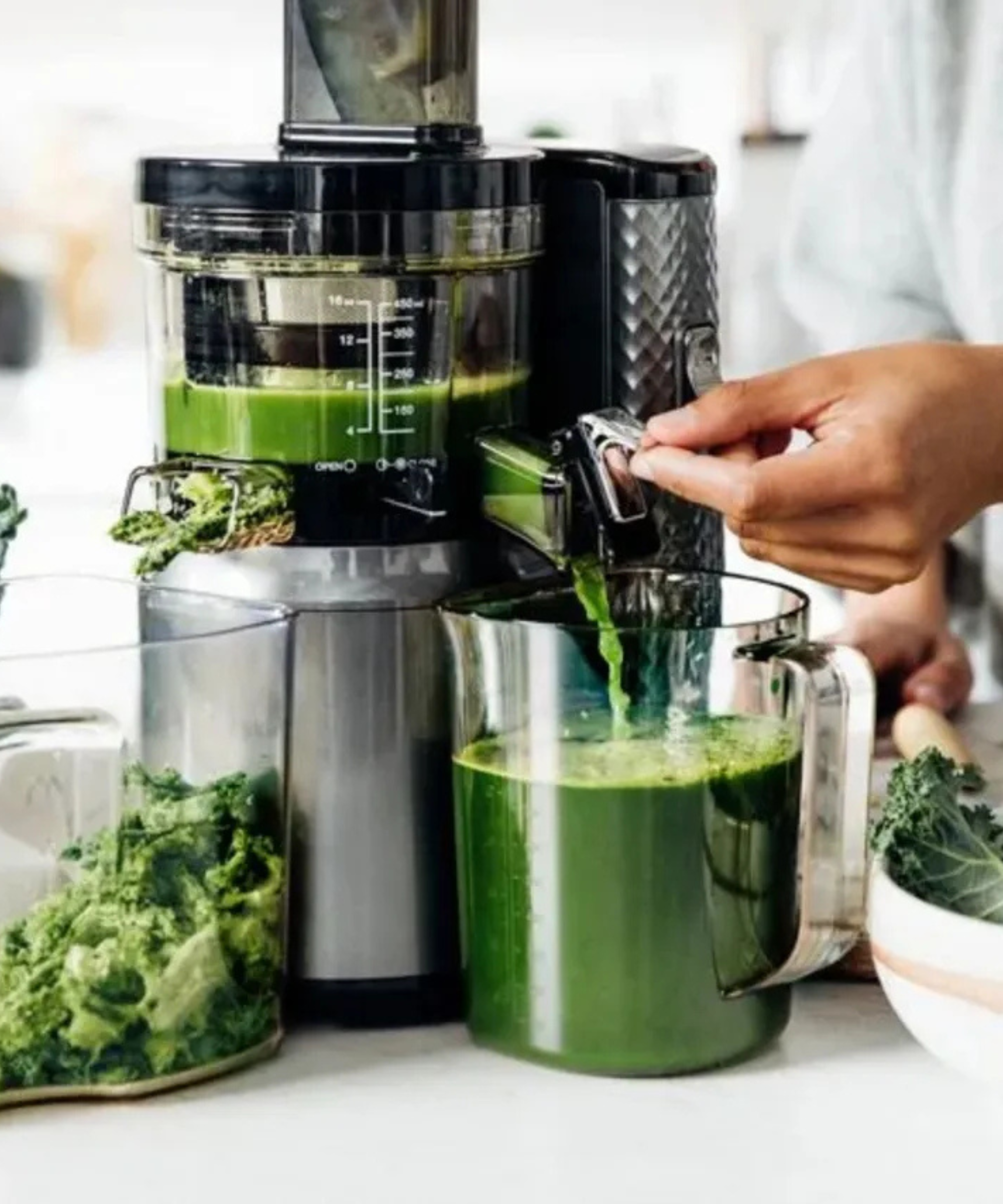
If you love healthy, vibrant drinks, you might be weighing up blender vs juicer and wondering which to buy. Having tested both the best blenders and the best juicers (including the best cold press juicers and masticating juicers), I can help you choose.
Juicers work to remove the juice from celery, apples, ginger and other fruit or vegetables to turn them into clear drinks, leaving behind the fibrous flesh and pulp which can either be used elsewhere in your kitchen or thrown away. The best models can also produce sorbets and nut milks, but other than that, they are one-trick ponies.
Blenders pulverize fruit, vegetables and just about anything else you put in them to make smoothies and sauces. They keep all the fiber, creating thick and creamy drinks with no waste. The most powerful blenders can crush ice, heat soups, and more, so they are more versatile appliances - there's a huge list of things you can make in a blender.
If you’re on a budget and your biggest priority is fresh, healthy, versatile drinks, opt for a blender. If you want to juice every single day, investing in a juicer is worth it.
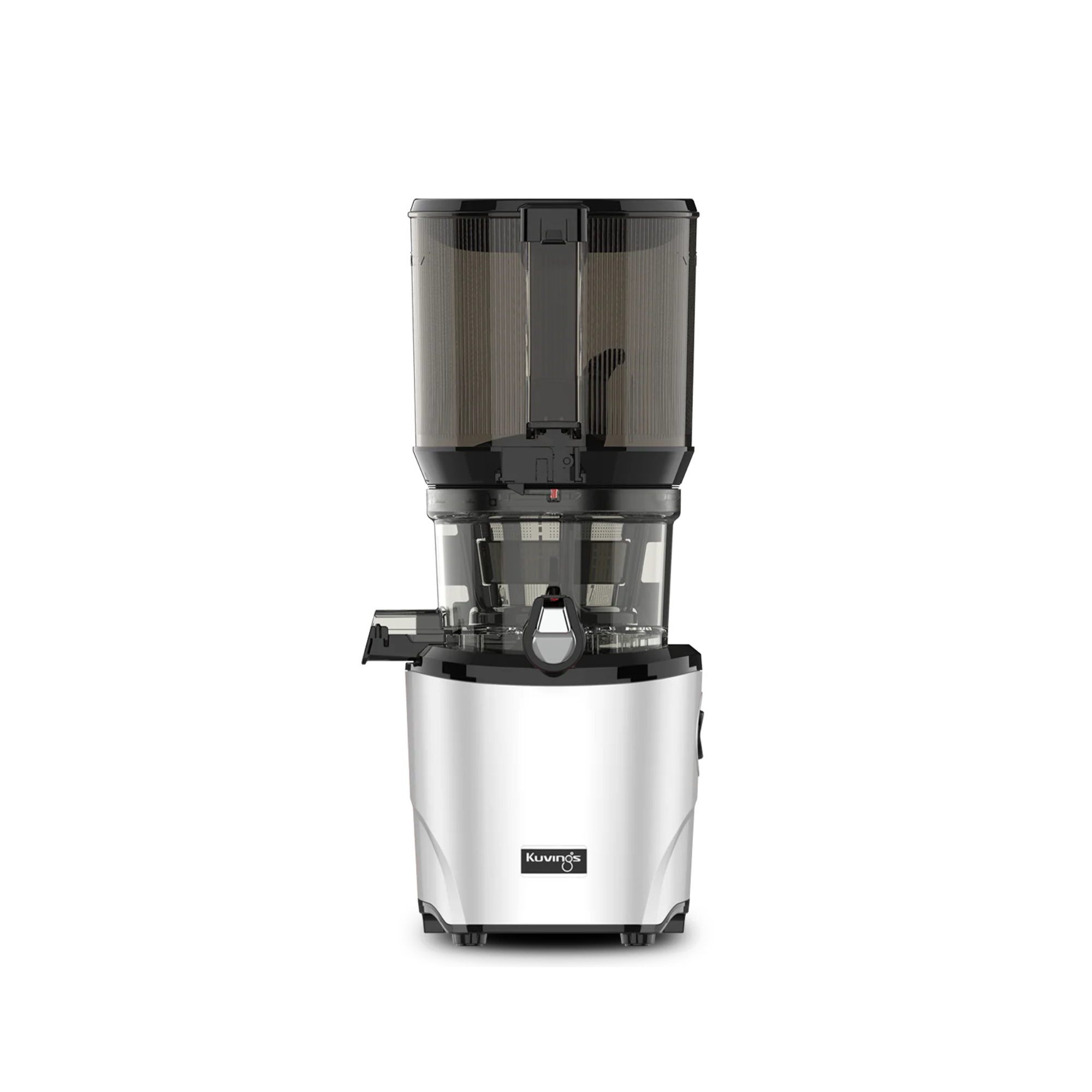
Effortless to use and oh-so premium, this is the best juicer out there. The Kuvings extracts every drop of goodness from the toughest ingredients – no chopping or dicing required. It can also tackle nut milk and sorbet.
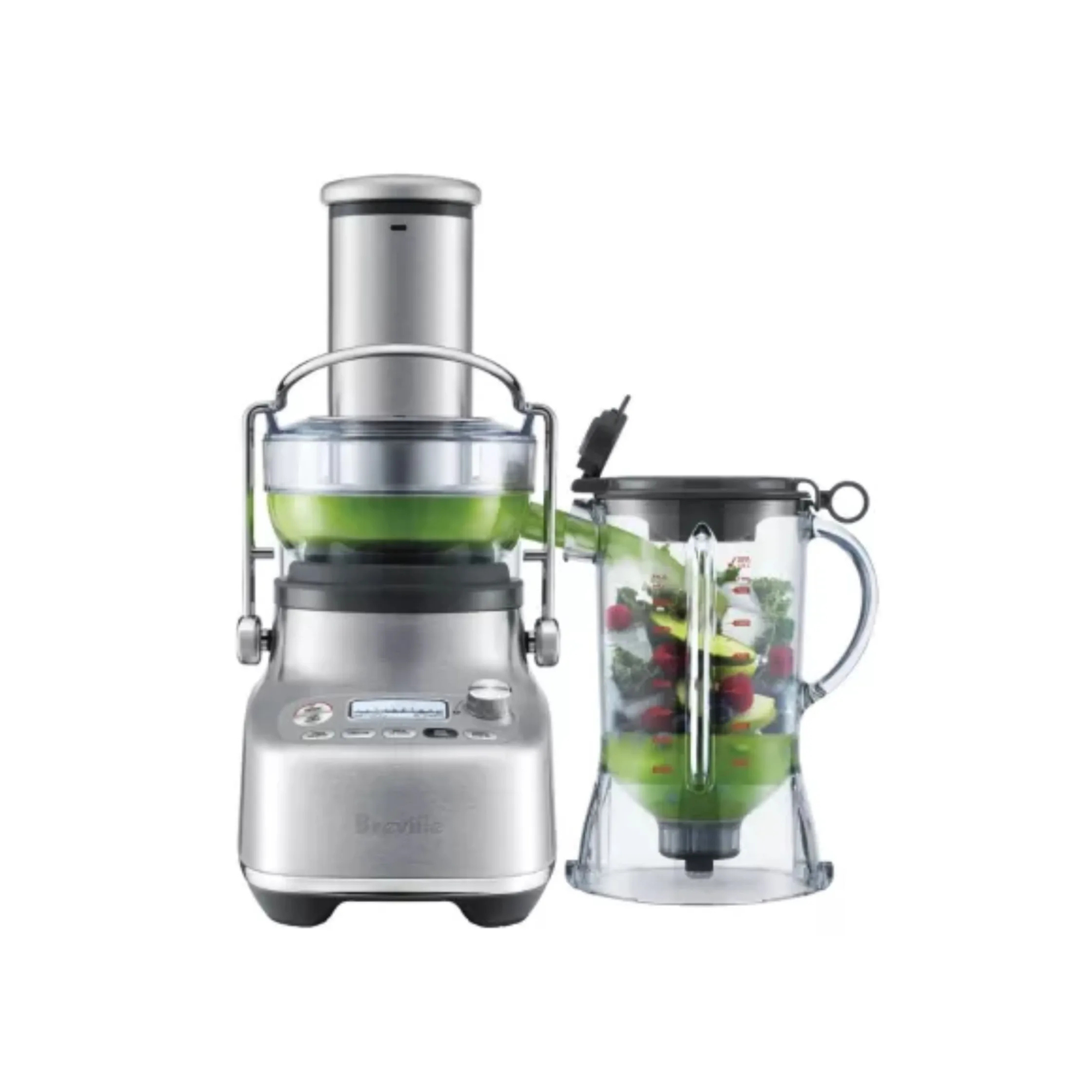
This powerful machine has a juice chute and blender pitcher, saving you from storing two appliances (but it is quite expensive). It can crush ice, too. Just make sure you have plenty of space in your cupboards, there is a lot of extra stuff that comes with this kit.
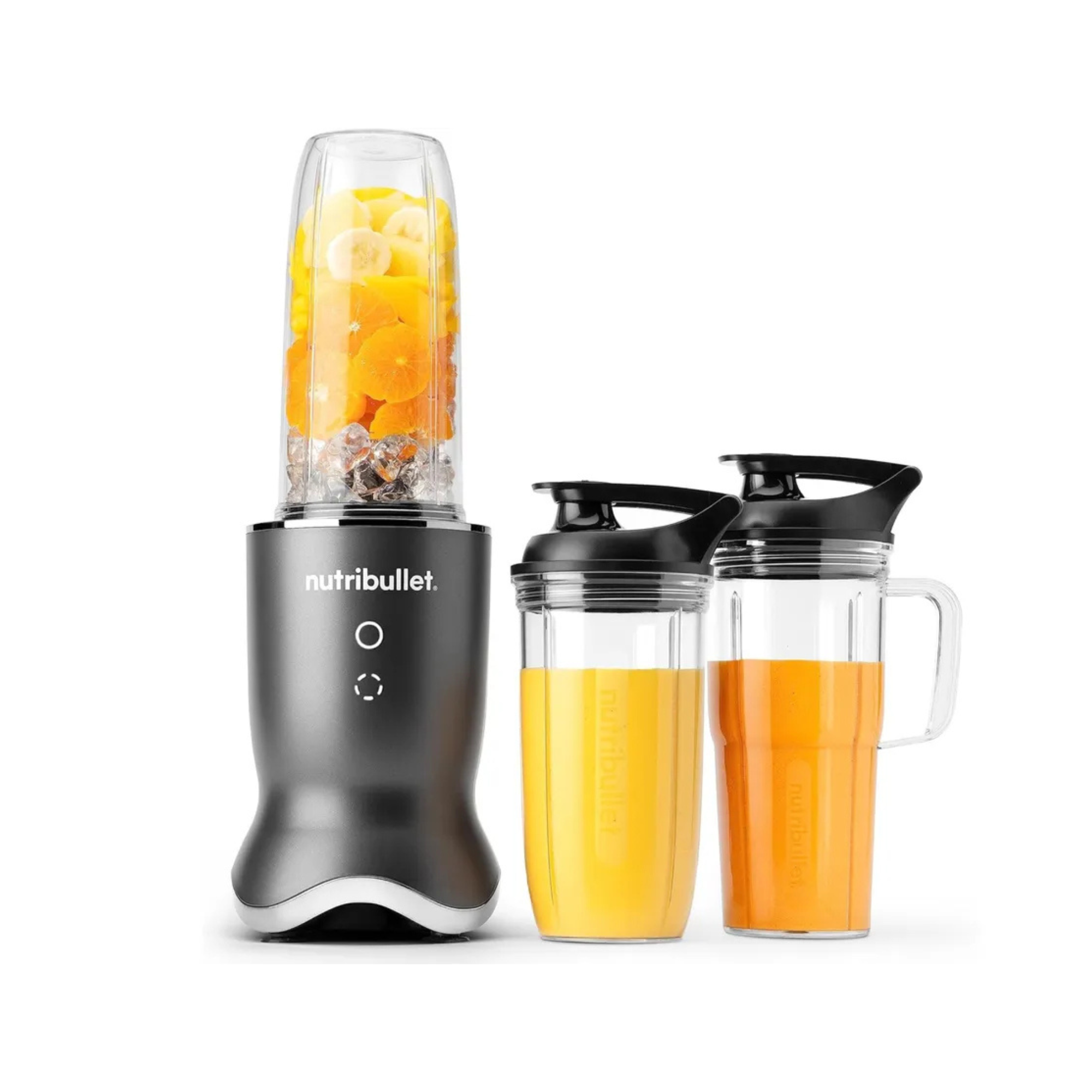
For perfect morning smoothies, look no further. This Nutribullet Ultra crushes frozen bananas, kale, and seeds into silky-smooth drinks in seconds. It can only blend one serving at a time, but it comes with extra cups and travel lids. I recommend this to all healthy drinks fantatics.
Choosing the right appliance by recipe
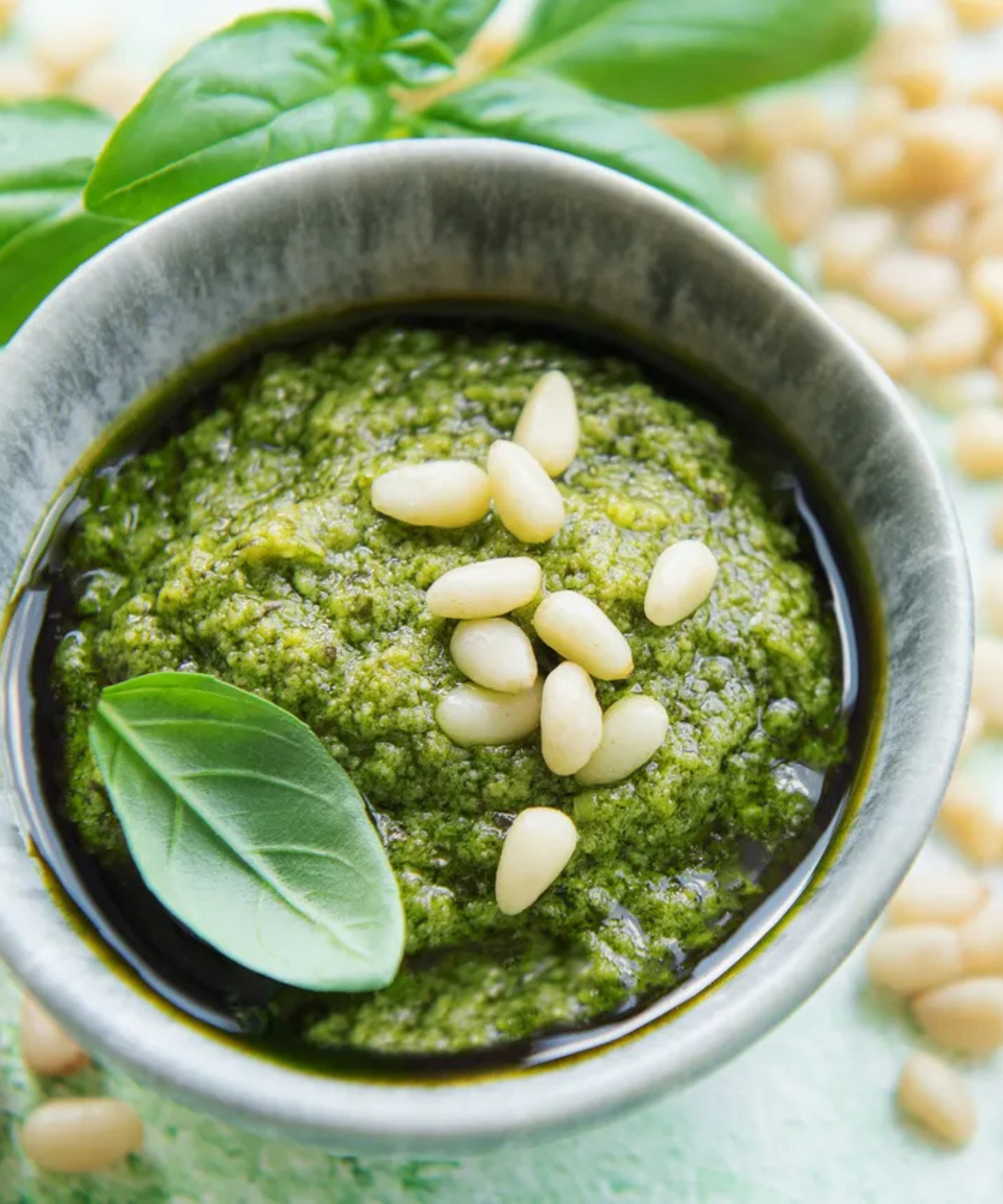
If you're still feeling lost, simply ask yourself: what do I want to make? I've listed the most popular recipes below and suggested an appliance or two that will help you make them.
SMOOTHIES AND FROZEN COCKTAILS:
Best appliance: Countertop blender. With a tall jar and powerful motor. This is the best appliance for creating smooth, silky recipes. If you just want to make smoothies and shakes for one person, choose one of the best personal blenders . If you want to liquefy tougher ingredients, like frozen kale or ice cubes for frosty cocktails, you'll need a larger, more powerful countertop model, like a Vitamix.
CREAMY SOUPS & PUREED SAUCES:
Best appliance: Immersion blender. You can blend directly in a large Dutch oven or pot, saving time and reducing washing up. I've written a full guide to how to choose the best blender for your needs.
In a pinch, a large food processor can work for soups or smoothies, but they have wide bowls without pouring spouts, so they can make a real mess (trust me, I've tried it).
DIPS (HUMMUS, PESTO, SALSA):
Best appliance: Food processor. You don't need to add liquid and the blades pulse quickly through dry ingredients to create richly-flavored dish with just the right texture. You can make hummus in a blender, but you'll need to add a ton of water and oil and that means it loses flavor. Similarly, you can make pesto in a blender, but it will come out very smooth. Another fantastic option is to use a traditional mortar and pestle, which creates just the right nutty, rustic texture.
CHOPPED ONIONS, CELERY, CARROTS, ETC:
Best appliance: Food processor. You won't find a better appliance to help you prep for soups, stews, or big-batch cooking. For smaller jobs, like a single shallot or a few cloves of garlic, a mini food chopper is a better fit.
SHREDDED CHEESE:
Best appliance: Food processor with a shredding attachment. This the only appliance for the job, and the same goes for grated vegetables. Otherwise, you'll need to get a grater out.
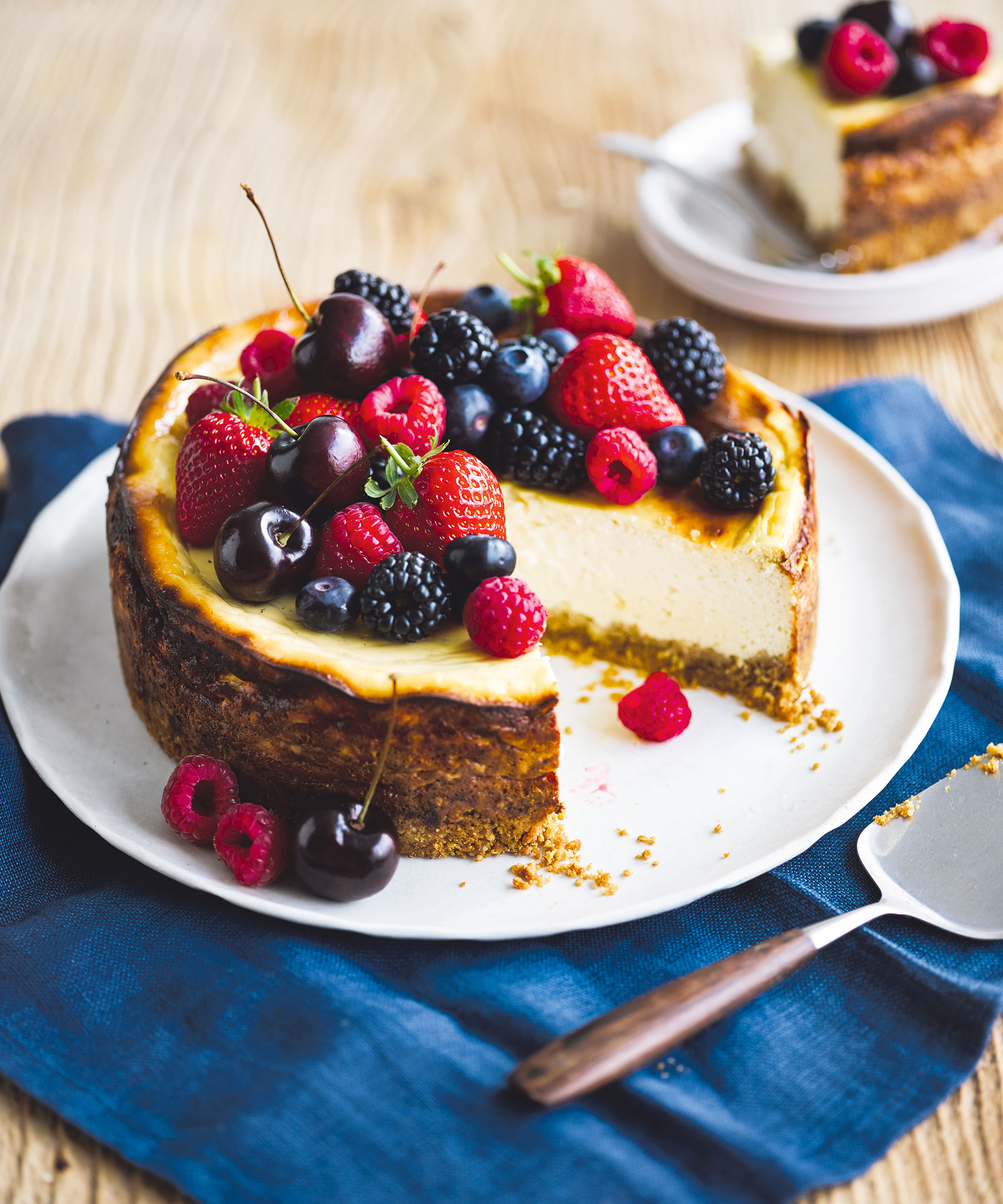
DOUGH, PASTRY AND DESSERTS:
Best appliance: A large food processor with attachments. With dough hooks and mixing accessories, you can make delicious desserts at scale, like brioche, sponge cake, pastry crusts, sliced fruit pies, fruit purees, chocolate mousse, and energy balls. Famously, a perfectly even cheesecake crumb is made in a processor.
A food processor can also help speed up pasta dough; in large restaurants, they always use food processors for pasta dishes to avoid the time and mess that comes with the handmade method.
CHOPPED HERBS, BREADCRUMBS AND TOPPINGS:
Best appliance: Mini food chopper. If you need to serve a huge dining room of people, a large food processor will be a better workhorse, but otherwise, a mini choper fits the bill. For breadcrumbs, a couple of quick pulses in a large blender will work, too.
JUICES AND NUT MILK:
Best appliance: A juicer. The best juicers will extract maximum juice from fruits and vegetables, leaving behind the pulp. However, you can also make juice or nut milk with a blender and a fine mesh strainer or nut milk bag. The blender/straining method demands a lot more effort, but still creates fresh results without a separate appliance.
GROUND MEAT:
Best appliance: a meat grinder. You can buy these separately, or many stand mixers offer grinder attachments (just take a look at the best KitchenAid attachments). A food processor can work in a pinch, but some produce uneven results - sometimes too chunky, sometimes too mushy, so check the reviews first.
NUT BUTTERS:
Best appliance: a food processor. The sharp blades, heavy base, and strong motor on a food processor can break down nuts into a creamy, spreadable consistency over several minutes of processing. Blenders can do this too, but they often need added oil to keep things moving. Vitamix is the only blender brand I've tried that managed to get good results (the Vitamix A2300 in particular is great).
The best alternatives
Food processors, choppers and blenders aren't the only food prep appliances in the game. Some alternatives come with accessories that transform them into immensely useful and versatile appliances.
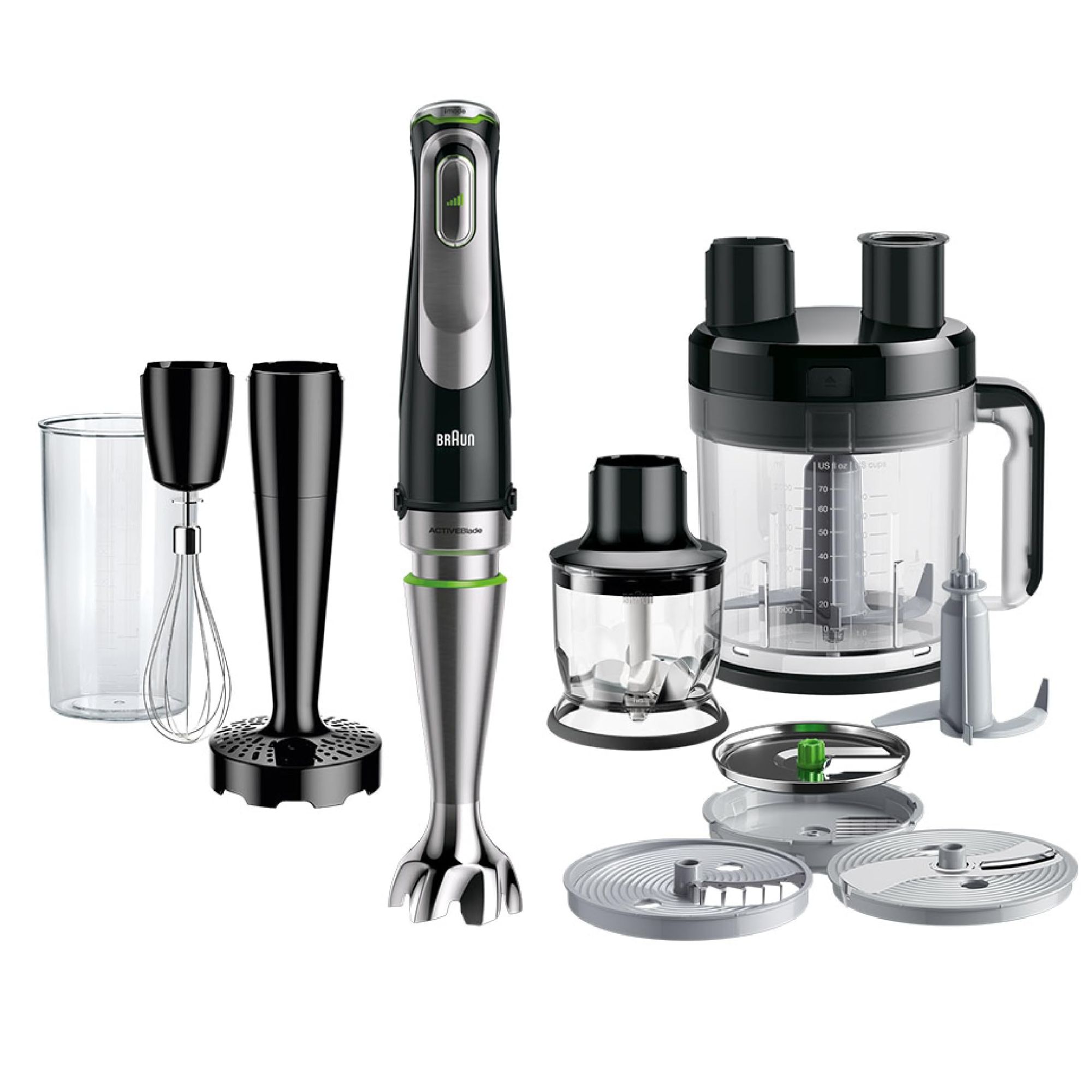
Immersion or stick blenders are a really savvy buy, and the sturdy Braun remains our top pick. It can blend velvety soups on the stove with precision. It also features multiple attachments for whisking, mashing, and a small food chopper for dicing herbs, garlic, shallots and more.
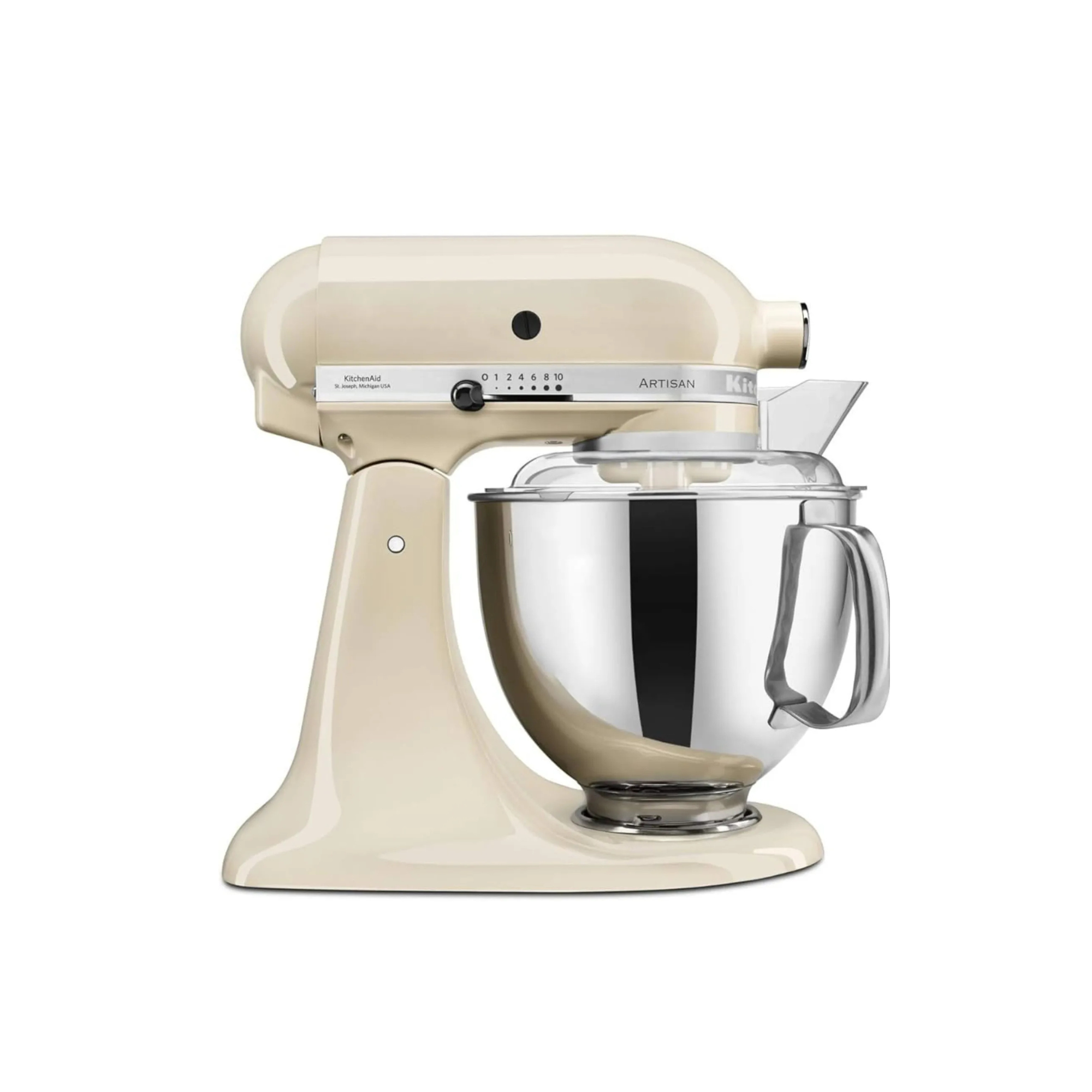
There are over thirty different attachments and accessories that are compatible with the world's best stand mixer. These can transform your classic stand mixer into an ice cream maker, pasta roller, spiralizer, and meat grinder. If you already have a KitchenAid, the possibilities for food prep are endless.
Read more in our guide to the best KitchenAid attachments
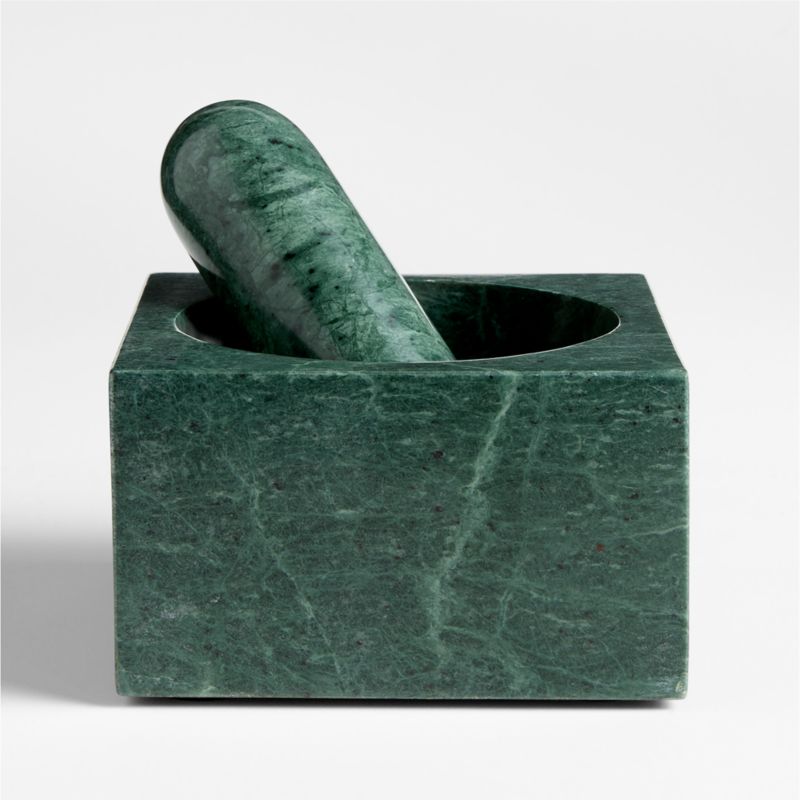
Hand-cut from green marble by artisans in India, I think this is the most beautiful pestle and mortar I have ever seen. The modern cube shape encases a circular bowl, with space for grinding herbs, spices, nuts, as well as making rustic pestos and chunky salsas.
How to get the best value for money
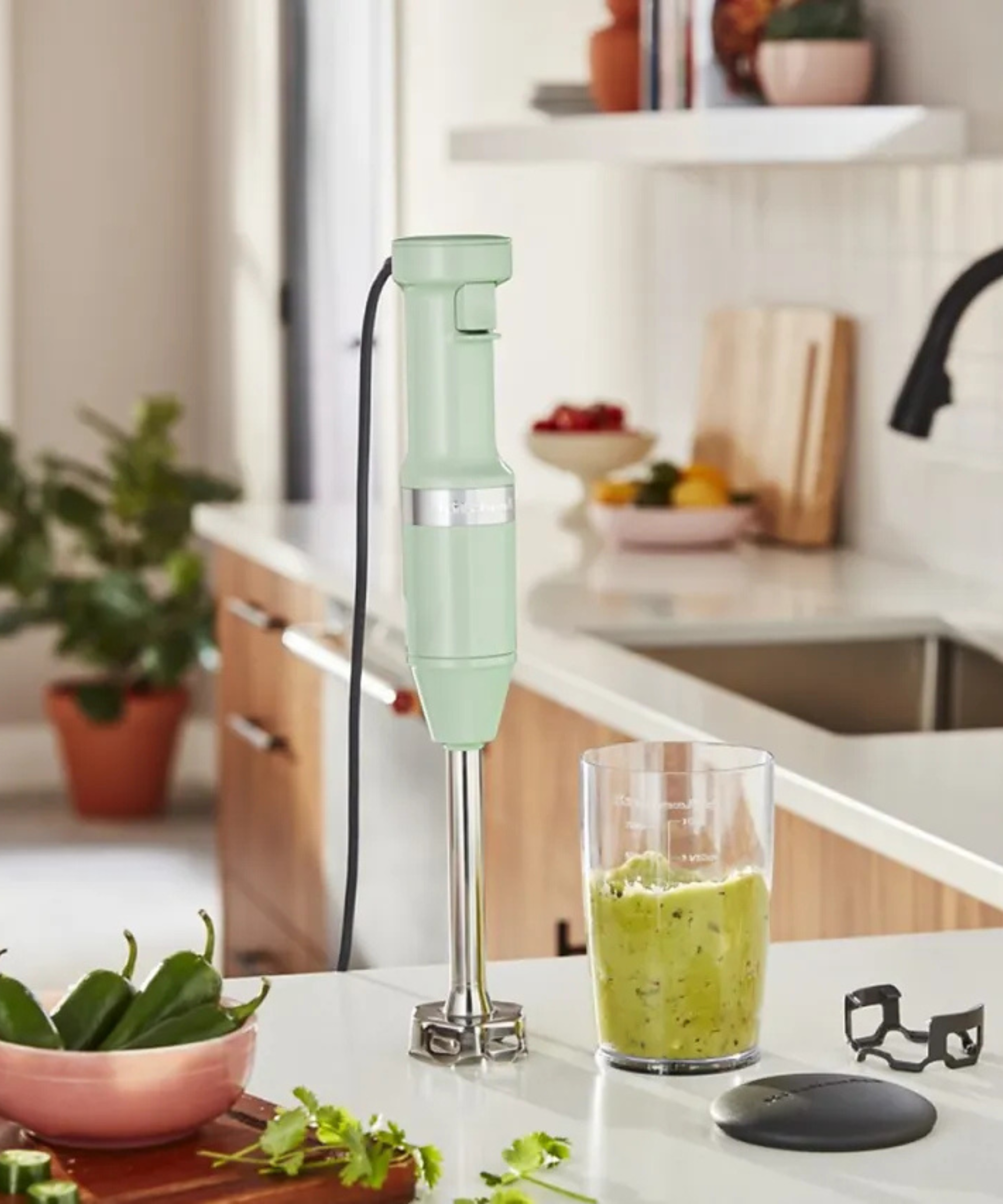
When it comes to kitchen appliances, the best value doesn’t come from buying everything at once - it comes from thinking carefully about what you really need and starting small.
I always recommend starting with a great blender, since it covers a wide range of recipes from smoothies to soups and sauces. If you later find yourself wanting to slice, dice, and shred without the manual effort, you can add a food processor. And if you don’t need the size or power of a full processor, a mini chopper is an affordable way to handle small prep tasks.
For budget-conscious cooks, an immersion blender is often the most versatile, space-saving choice. It cleans easily, tucks into a drawer, and with a little manual effort can blend soups and smoothies, whip cream, and even handle small chopping or whisking jobs.
By building your toolkit gradually, starting with the most versatile tool and only adding extras as your cooking style grows and adds demand - you’ll save money, avoid clutter, and still have the right appliance for every job.
For any kitchen appliance purchase you make, I always recommend shopping in the sales. National holidays like Black Friday and Cyber weekend bring deep discounts on big brand names, while Amazon Prime Day (usually held bi-annually in July and October) brings deep savings and speedy delivery, too.
The final verdict
Choosing the right kitchen appliance really comes down to how you like to cook. If you’re just starting out or don’t spend much time in the kitchen, I think the best blender and a small food chopper will cover almost everything you need - from smoothies and soups to quick veggie and herb prep.
For those who love cooking, hosting, and experimenting with more complex recipes, investing in the best food processor makes sense. It’s versatile enough to handle dough, nut butters, and larger batches. You can couple that with a great blender for soups, smoothies, and your signature cocktails.
And if you’re a keen baker, you may not need a separate food processor for dough at all – of the best stand mixers offer attachments that can handle slicing, shredding, grinding, or even food processing, letting you expand your cooking capabilities without cluttering your kitchen with another appliance.
FAQs
Do I need a food processor?
Food processors are incredibly useful appliances. They can save you time and deliver consistent results in a fraction of the time. If you're a keen cook and you often prep for a crowd, this should be a priority.
Do I need a food chopper?
If you own a food processor, you probably don't need a food chopper. However, if you don't have either and need a compact option, a food chopper will be an invaluable appliance.
Will a food processor grind meat?
Some will. Our expert kitchen tester, Camryn, says the Cuisinart Elemental 13-Cup Food Processor proved best on test for grinding meat. Powered by a 550W motor and equipped with a 13-cup capacity, this food processor makes mincemeat out of all manner of fresh and frozen produce.
Design expertise in your inbox – from inspiring decorating ideas and beautiful celebrity homes to practical gardening advice and shopping round-ups.

Lydia is the Kitchen Appliances Editor for Homes & Gardens, testing everything from air fryers and mixers to juicers and coffee machines. She trained in Culinary Arts at Leiths School of Food & Wine and previously served as the Recipe Editor for Mindful Chef.